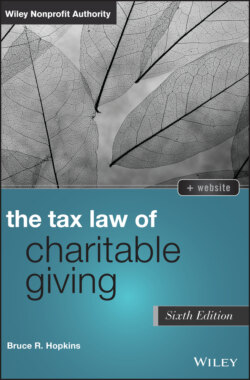Читать книгу The Tax Law of Charitable Giving - Bruce Hopkins R., Bruce R. Hopkins, David Middlebrook - Страница 34
(j) Dividends Paid to Charitable Organizations
ОглавлениеWhen a for-profit corporation transfers, without consideration, money or property to a charitable organization that is its sole shareholder, the transfer is treated for federal tax purposes as a distribution constituting a dividend215 and not as a charitable contribution.216
The reasoning underlying this rule of law was articulated by a federal court of appeals in 1967.217 The court observed that (1) the rationale of the unrelated business income rules is to treat, for tax purposes, tax-exempt organizations with unrelated business income the same as for-profit organizations;218 (2) to allow a subsidiary of an exempt organization a charitable deduction for amounts distributed to its exempt parent would permit the exempt organization to receive a greater return on its investment in its unrelated business (conducted indirectly by means of the subsidiary) than a nonexempt organization; and (3) it is from this competitive advantage that Congress intended to protect competing for-profit businesses not linked to an exempt organization by taxing unrelated business income of exempt organizations and by limiting an exempt organization's charitable contribution deduction from unrelated business income to grants made to other exempt organizations.219 This appellate court concluded that an ostensible contribution made by a for-profit subsidiary to its exempt parent is not a contribution considered to be made to another exempt organization, and therefore the benefits of the charitable deduction are not available to it for property transfers of this nature.220
Dividend treatment in this context can arise even when the charitable organization receiving a payment from a for-profit corporation is not a stockholder. In one case, a for-profit corporation, organized and operated for the purpose of benefiting a university, distributed funds to the university out of its earnings and profits. The university was not a stockholder of the corporation and did not exercise any control over it. Nonetheless, noting that the profits of the corporation were distributed only to the university, a court held that the university was a beneficial owner of the corporation and applied the dividend treatment rationale accordingly.221
